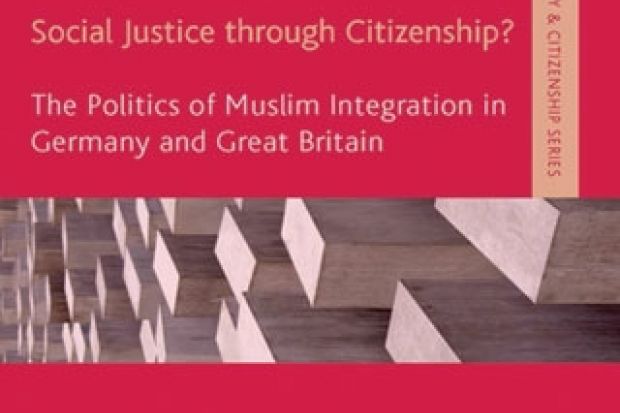The issue of Muslim integration has had a great deal of attention in the post-9/11 world. In Europe, nowhere has this been more apparent than in the UK and Germany, where Muslims have been placed centre stage in debates on national identity and multiculturalism, as well as in expressions of anxiety over cultural tensions, perceived breaches of Western values, and terrorist plots and attacks. It is within this context that Aleksandra Lewicki embarks on the challenging task of considering four discourses of citizenship in the political integration of Muslims in both countries: civic republicanism, multiculturalism, civic universalism and denationalisation. Through comparative insights into how the two countries have managed institutionalised consultations with Muslims and the incorporation of religion into anti-discrimination legislation, she offers a pertinent reconsideration of the meanings of both citizenship and integration.
Readers should not be scared off by the book’s loyalty to theoretical concepts and analytical frameworks: although it can be daunting at times, it achieves something quite special. Lewicki makes sense of some key political integration measures involving Muslims in Britain and Germany in recent years, tracing the institutionalised backdrop and dialogue that led to consultations with Muslim representatives in both countries, including those during the UK’s “War on Terror” and at the annual German Islam Conference (DIK), as well as debates about religious diversity and discrimination. Drawing on a significant body of data, her study includes analysis of policy reports, speeches and pieces of legislation alongside extensive interviews with minority activists, academic advisers and civil servants, all helping to reveal the political processes behind the headlines.
Her main argument is that citizenship is not fixed or rigid, but rather is continually pulled in different directions by a variety of perspectives, approaches and understandings. As a result, political integration should not be perceived as incorporation into a predetermined or inflexible unit. On the contrary, it is a process whose boundaries are constantly being shifted and negotiated by those involved. For example, discussions at the DIK have drawn on an assortment of multicultural, civic republican and civic universal ideas, with Muslim representatives perceiving themselves as citizens and thus seeking equal treatment, and majority actors making these rights conditional upon further minority adaptations and adjustments. Similarly, New Labour’s political approach was shaped by a range of citizenship discourses, with different inquiries, reports and civil servants advocating diverse approaches and interpretations.
Yet the relevance and impact of Social Justice through Citizenship? extend beyond the case studies it covers. It offers an unprecedented and wide-ranging evaluation of the accommodation of Islam in the UK and Germany, and a reassessment of citizenship on a European scale. Even more importantly, it reaches out to both academics and policymakers, offering a model of how discourses of citizenship can influence the way structural inequalities are managed. There is no doubt that the integration of Muslims in these two countries, as well as further afield, will continue to concern academics, politicians and members of the public for years to come. Lewicki’s recognition of the importance of the historical context, her detailing of recent institutionalised consultations and her informed policy suggestions should secure this book a place at the centre of these deliberations.
Social Justice through Citizenship? The Politics of Muslim Integration in Germany and Great Britain
By Aleksandra Lewicki
Palgrave Macmillan, 256pp, £65.00
ISBN 97811374366 and 6641 (e-book)
Published August 2014
Register to continue
Why register?
- Registration is free and only takes a moment
- Once registered, you can read 3 articles a month
- Sign up for our newsletter
Subscribe
Or subscribe for unlimited access to:
- Unlimited access to news, views, insights & reviews
- Digital editions
- Digital access to THE’s university and college rankings analysis
Already registered or a current subscriber? Login





